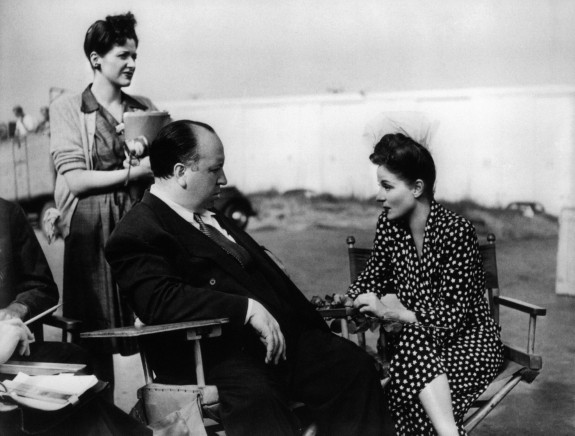New York
January 10, 1944
Dear Sirs:
I have just seen the film Lifeboat, directed by Alfred Hitchcock and billed as written by me. While in many ways the film is excellent there are one or two complaints I would like to make. While it is certainly true that I wrote a script for Lifeboat, it is not true that in that script as in the film there were any slurs against organized labor nor was there a stock comedy Negro. On the contrary there was an intelligent and thoughtful seaman who knew realistically what he was about. And instead of the usual colored travesty of the half comic and half pathetic Negro there was a Negro of dignity, purpose and personality. Since this film occurs over my name, it is painful to me that these strange, sly obliquities should be ascribed to me.
John Steinbeck
A month later, Steinbeck sent a telegram to his agent, Annie Laurie Williams:
MEXICO CITY
FEBRUARY 19, 1944
PLEASE CONVEY THE FOLLOWING TO 20TH CENTURY FOX IN VIEW OF THE FACT THAT MY SCRIPT FOR THE PICTURE LIFE BOAT WAS DISTORTED IN PRODUCTION SO THAT ITS LINE AND INTENTION HAS BEEN CHANGED AND BECAUSE THE PICTURE SEEMS TO ME TO BE DANGEROUS TO THE AMERICAN WAR EFFORT I REQUEST MY NAME BE REMOVED FROM ANY CONNECTION WITH ANY SHOWING OF THIS FILM
JOHN STEINBECK
On 21 February 1944, Steinbeck wrote to his agent again, referring to his telegram sent two days earlier:
It does not seem right that knowing the effect of the picture on many people, the studio still lets it go. As for Hitchcock, I think his reasons were very simple. 1. He has been doing stories of international spies and master minds for so long that it has become a habit. And second, he is one of those incredible English middle class snobs who really and truly despise working people. As you know, there were other things that bothered me-- technical things. I know that one man can't row a boat of that size and in my story, no one touched an oar except to steer.
 |
| Alfred Hitchcock and his leading lady Tallulah Bankhead on the set of Lifeboat. |





Fascinating film and fascinating article. Thank you
ReplyDelete